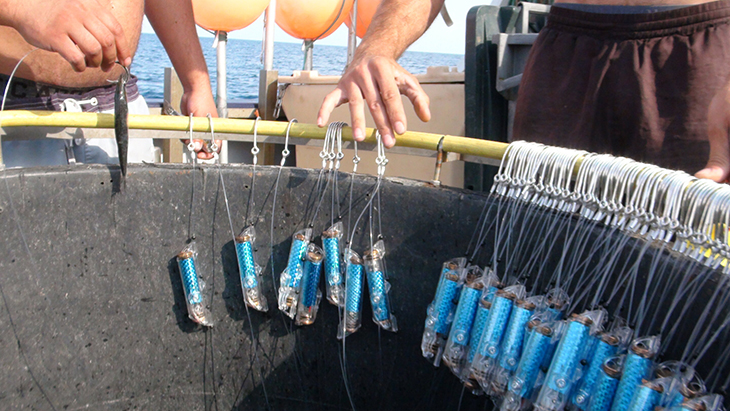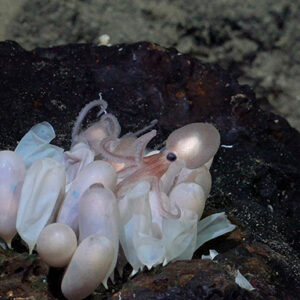
Some people fish for game and in the process, the wildlife underwater get hurt, especially the sharks. While these predators are feared by many, they have become an integral member of the ocean. They are there to make sure there is balance.
So, what happens when thousands of sharks are killed each year? The ramifications mean that the rest of the world will pay a high price for their loss. This is why groups of people have banded together to keep these creatures safe.
Millions of sharks could actually be saved from being caught on fishing hooks. This is with the help of a recent invention that’s designed to act like a vehicle’s hazard lights when placed underwater.
This innovative device is called SharkGuard. What it does is fit onto the longlines that are used by fishermen. When attached, these begin to make an electrical field that surrounds the baited hook. This field can be picked up by sharks and rays pick with the help of their electroreceptors.
Tests were made and the results show that the field is able to lower the bycatch of these sharks by as much as 91 percent and by 71 percent for rays.
Sadly, sharks don’t often catch the attention of conservationists simply because of their reputation to rarely nibble on swimmers, which sometimes does lead to casualties. However, they are important and this is why the inventors of the technology say that this may be able to reverse the dramatic decline of endangered sharks happening all over the globe.
“The main implication is that commercial longline fishing may continue, but it won’t always necessarily result in the mass bycatch of sharks and rays,” shared Dr. Robert Enever. He is from the conservation company called Fishtek Marine, producers of SharkGuard.
Another threat of the sharks is the longline tuna fishing. In fact, this is the top of the list of threats for sharks that live in the open ocean. Many experts have been considering how to mitigate this threat, and Dr. Enever and his colleagues theorized that shark deterrents that worked to protect scuba divers and surfers may also be used to tuna fisheries when it comes to protecting the sharks from bycatch.
The team then conducted sea trials for the device they came up with last July and August of 2021. They did this in southern France and after which, they were able to publish their results in the journal Current Biology.
During this time, two fishing vessels fished 22 longlines on 11 separate trips. They were able to deploy a more than 18,000 hooks then and they discovered how SharkGuard hooks significantly lowered the number of blue sharks and pelagic stingrays caught when they compared the results to the use of standard control hooks.
The catch rate of these species per unit effort lowered by 91 percent and 71 percent for sharks and rays respectively. On the other hand, catch rates of bluefin tuna had not been impacted by the SharkGuard placed on the hook.
The researchers also said that if SharkGuard use was scaled up to reach and cater to whole fisheries, this would mean that there would be much lower number of sharks being caught on fishing hooks and gears. This change could, of course, slow down the dramatic decline of shark populations from all over.
Because its effectivity has been shown to work, Dr. Enever and colleagues said they are now working to overcome a barrier of battery life in order to allow all fishers to “fit it and forget it.”
A full set of induction-charged SharkGuard devices for 2,000 hooks would be priced roughly around $20,000 (£16,790). These would have a lifespan of three to five years, which the researchers say is a reasonable annual cost for most operators for commercial tuna fishing.
The researchers are now encouraging fishers who experience high shark and ray bycatch, and retail companies who want to better the sustainability of their supply chain, to look for Fishtek Marine and contact them early while the trials and engineering developments are currently being planned for commercialization.
“There is hope! Against the relentless backdrop of stories of dramatic declines occurring across all species, it is important to remember that there are people working hard to find solutions,” Enever said as he was excited with the news.
“SharkGuard is an example of where, given the appropriate backing, it would be possible to roll the solution out on a sufficient scale to reverse the current decline in global shark populations,” he added.
What are your thoughts? Please comment below and share this news!
True Activist / Report a typo


